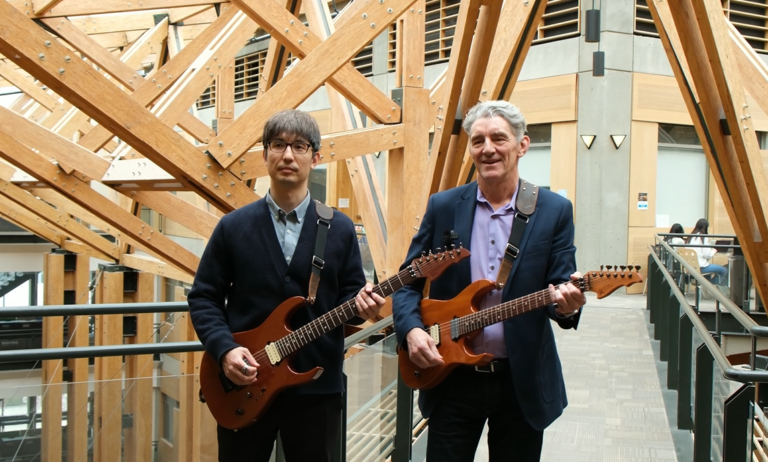Easy ways to conserve water this summer
UBC freshwater scientist and forestry professor Dr. John Richardson shares his insights on the current water situation and practical tips for conserving water.

Water conservation has become more important than ever as British Columbia braces for a scorching summer, with certain regions like the Sunshine Coast already facing drought conditions.
Dr. John Richardson, a UBC freshwater scientist and professor in the faculty of forestry, shares his insights on the current water situation and practical tips for conserving water during these challenging times.
What are the current water challenges in B.C. and how do they relate to global water scarcity or climate change?
There are several dimensions to our growing water scarcity.
The most obvious is the enormous increase in population size in most of our major centres over the past few decades. Most water infrastructure was designed decades ago, partially anticipating growth. However, superimposed on that is global change, both climate and land use. Climate change results in more pronounced seasonality, that is, more intense droughts that last longer. We have had less-than-average rainfall for many of the past 15 months, and the drought in 2022 put us on alert that shortage of water is not easy to deal with. When rain does come, another climate change impact is the increased frequency and intensity of storms. Five years ago, no-one spoke about atmospheric rivers, but now most of us have lived through these events, including the November 2021 floods.
Lastly, warmer temperatures mean more evaporation of surface water, including from reservoirs and lakes, which can be a significant loss of water, but also coupled with forests drying out, more fires and people using more water. The needs for water are unrelenting, from drinking, cooking, bathing, flushing, fire emergencies, industry, agriculture and others.
Could you provide some easy and effective water conservation tips specifically tailored to local conditions in B.C.?
We can do a little bit on the supply side, such as more reservoirs and more storage, but those come with environmental costs. We can’t do anything to control the amount and timing of precipitation. On the demand side of the equation, we can try to reduce consumption. Avoid watering lawns, given the priority of water for drinking and other uses. Consider creating gardens of native plants that are more drought-tolerant and include shade trees to keep cooler and reduce evaporation. Take shorter showers and turn off the tap while brushing your teeth. Consider technologies such as smaller-volume toilets.
In some cities, a lot of water is lost through broken pipes, so fixing those can be a big help. Individual homeowners can also use water capture in rain barrels to provide for water available for gardens. Each of these is a relatively small volume of water but multiplied by the millions of people in the Metro Vancouver region it becomes a large volume.
Remember that we also have to leave water for our freshwater habitats, which affects salmon and the ecosystems that support them. Any time there is a total absence of water means the end of a population of aquatic organisms.
How can communities get involved to help conserve water?
One example of a water conservation programs in B.C. is Water Smart in the Okanagan region, a regularly water-stressed area. The growing intensity of urban growth and agricultural use in the Okanagan makes it a “living laboratory” to study what can be done to reduce our use of water.
It is worthwhile to have examples of what a garden with native species of plants can look like. Social conformity of having a lawn of a non-native grass and a few flowers can be supplanted if neighbours see examples of alternatives. Some organizations also provide lists of tolerant, native species and how to take care of them, and there are garden centres that sell native plants.
How can cities further promote water conservation?
Cities are aware that more shading of communities with large trees keeps things cooler and also reduces demand for water. Planting urban greenspace with more native plants and moving from grass to other ground covers can also help. Some even suggest moss gardens. B.C. has hundreds of species of mosses, which can provide interesting textures and colours for gardens.
Water metering is also a great idea. Some municipalities now monitor water, but there are many, including Vancouver, that do not. We all need to do our share since water is a community resource and it is in limited supply.




